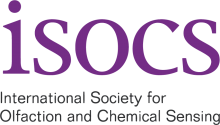Travel visas and eTA
Important note: The following information is provided on an unofficial basis for the sole purpose of assistance. The conference organizers cannot be held responsible for any change in the data. It is the sole responsibility of the participant to ultimately validate this information with official sources, some of which are indicated in this document.
In this page:
- Visas and Electronic Travel Authorization (eTA)
- Countries and territories whose citizens need a visa to travel to Canada
- Countries and territories whose citizens need an eTA to travel to Canada
- eTA Exemptions
- Travel documents
- Determine your eligibility – What you need to visit Canada as a tourist
- Letter of invitation
- How to request an invitation letter?
- More information
This webpage will help you find out what you need to visit Canada as a tourist or business person, how to extend your stay in Canada and what documents you need to carry with you to transit through Canada. For more information, visit the web sites of Citizenship and Immigration.
Visas and Electronic Travel Authorization (eTA)
Citizens of certain countries and territories need a visa to visit or transit Canada. Others need an eTA. Starting March 15, 2016, visa-exempt foreign nationals who fly to or transit through Canada will need an Electronic Travel Authorization (eTA). Exceptions include U.S. citizens and travellers with a valid visa. Read about the changes and how they may affect you.
Find out if you need an eTA or a visitor visa
Note: you can also do it using the online form at the Canada citizenship and immigration website.
The following foreign nationals will need an eTA before boarding their flight to Canada as of March 15, 2016:
- Persons who have been lawfully admitted to the United States for permanent residence (United States Permanent Residents).
- Holder of a passport or travel document issued by the Holy See.
- Holder of a national Israeli passport.
- Holder of a passport issued by the Hong Kong Special Administrative Region of the People’s Republic of China.
- Holder of a passport issued by the United Kingdom to a British National (Overseas), as a person born, naturalized or registered in Hong Kong.
- Holder of a passport issued by the United Kingdom to a British Subject which contains the observation that the holder has the right of abode in the United Kingdom.
- Holder of an ordinary passport issued by the Ministry of Foreign Affairs in Taiwan that includes the personal identification number of the individual. Note: Taiwanese citizens who hold a passport issued by the Ministry of Foreign Affairs in Taiwan that does not include their personal identification number need a visa to come to Canada.
eTA Exemptions
The following foreign nationals will be exempt from the eTA requirement:
- Nationals of the United States.
- Her Majesty the Queen of Canada and any member of the Royal Family
- Citizens of France who are residents of St. Pierre and Miquelon who seek to enter Canada directly from St. Pierre and Miquelon.
- Visitors, students and workers, who seek to re-enter Canada after solely visiting either the United States or St. Pierre and Miquelon, providing that they return to Canada by the end of the period initially authorized for their stay or any extension to it.
- Foreign nationals who are passengers on a flight stopping in Canada for the sole purpose of refuelling and possess proper documents to enter the United States and their flight is bound for that country, or they were lawfully admitted to the United States and their flight originated in that country.
- Foreign nationals who are passengers on a flight that, owing to an emergency or other unforeseen circumstances, makes an unscheduled stop in Canada.
- Foreign nationals seeking to transit through Canada under Transit Without Visa or China Transit Program.
- Foreign nationals who hold a passport that contains a diplomatic acceptance, a consular acceptance or an official acceptance issued by the Chief of Protocol for the Department of Foreign Affairs and International Trade on behalf of the Government of Canada and are a properly accredited diplomats, consular officers, representatives or officials of a country other than Canada, of the United Nations or any of its agencies, or of any international organization of which Canada is a member.
- Foreign nationals seeking to enter and remain in Canada solely as a crew member of a means of transportation that may be used for transportation by air or to become a member of such a crew; or to transit through Canada after working, or to work, as a crew member of a means of transportation that may be used for transportation by air, if they possess a ticket for departure from Canada within 24 hours after their arrival in Canada.
- Foreign nationals seeking to enter and remain in Canada solely to carry out official duties as a member of the armed forces of a country that is a designated state for the purposes of the Visiting Forces Act, unless they have been designated under that Act as a civilian component of those armed forces.
- Foreign nationals seeking to enter and remain in Canada solely to conduct inspections of the flight operation procedures or cabin safety of a commercial air carrier operating international flights, if they are a civil aviation inspector of a national aeronautical authority and possess valid documentation to that effect.
- Foreign nationals seeking to enter and remain in Canada solely to participate as an accredited representative or as an adviser to an aviation accident or incident investigation conducted under the Canadian Transportation Accident Investigation and Safety Board Act, if they possess valid documentation to that effect.
Travel documents
To enter Canada you must hold a valid passport at all times, and in some cases, a visa. Please check the Invitation letter info section provided on this webpage to know how you can obtain an invitation letter from the conference and apply to get a travel visa for entry into Canada.
Identification requirements for U. S. citizens and permanent residents
If you are a U.S. citizen, ensure you carry proof of citizenship such as a passport, birth certificate, a certificate of citizenship or naturalization, or a Certificate of Indian Status along with photo identification. If you are a U.S. permanent resident, ensure you carry proof of your status such as a U.S. Permanent Resident Card.
For all modes of entry, we recommend you carry a valid passport for all travel abroad, including visits to Canada from the United States. A passport may be required by your airline or alternative transportation authority, as it is the only universally-accepted identification document.
Citizens and permanent residents of the United States who are members of the NEXUS or FAST programs may present their membership cards to the CBSA as proof of identity and as documents that denote citizenship, when arriving by land or marine modes only.
All visitors arriving from or transiting through the United States are encouraged to visit the U.S. Customs and Border Protection Web site for information concerning the U.S. Western Hemisphere Travel Initiative, and the requirements to enter or return to the United States.
Identification requirements for international visitors
The Government of Canada requires that all travellers carry a valid passport because it is the only reliable and universally-accepted travel and identification document for the purpose of international travel.
International transportation companies such as airlines may require travellers to present a passport. Therefore, travellers may face delays or may not be allowed to board the aircraft or other mode of transportation, if they present other documents.
When you enter Canada, a border services officer may ask to see your passport and a valid visa (if you are arriving from a country for which one is required). Visit the Citizenship and Immigration Canada website to find out what travel documents you need to come to Canada. We remind all travellers you must carry proof of citizenship such as a birth certificate, a certificate of citizenship or naturalization or a Certificate of Indian Status along with photo identification.
Transport companies, such as airlines, must make sure you have proper, valid travel documents. If you do not have the proper documents, you may be delayed or unable to board the plane.
The following travel documents are not considered reliable.
You cannot use them to enter Canada:
- passports supposedly issued by Somalia,
- non-machine readable passports issued by the Czech Republic,
- temporary passports issued by the Republic of South Africa and
- provisional passports issued by Venezuela.
Determine your eligibility – What you need to visit Canada as a tourist
Most travellers need a valid entry document such as an Electronic Travel Authorization (eTA) or a visa to visit Canada. This will depend on your citizenship or your situation.
Basic requirements
To visit Canada, you will need to meet some basic requirements, such as:
- have a valid travel document, such as a passport,
- be in good health,
- have no criminal or immigration-related convictions,
- convince an immigration officer that you will leave Canada at the end of your visit, and
- have enough money for your stay. (The amount of money you will need can vary. It depends on things such as how long you
- will stay, and whether you will stay in a hotel, or with friends or
- a letter of invitation
Letter of invitation
The letter of invitation helps the visa officer assess the purpose of the trip and the resources the applicants require during their stay in Canada.
Including this code in the letter of invitation will facilitate the processing of visa applications.
How to request an invitation letter?
The invitation letter for the purpose of visa applications will be sent after registration is paid in full and verified. The fastest method is to pay registration by credit card. Payment by check and wire transfer takes more time and letters of invitation will not be issued until payment has arrived.
Please contact Brianna Orr (borr@conferencecatalysts.com) if you require an invitation letter.
Submission of Applications
Canada does not have a visa office in every country so it is important that delegates visit the website of the visa office responsible for processing their visa applications. Information is available on the website on how to submit a visa application and the documentation required.
Delegates are encouraged to submit their visa applications well in advance of the date of the event at a Visa Application Centre or on-line E-applications (e-Apps).



